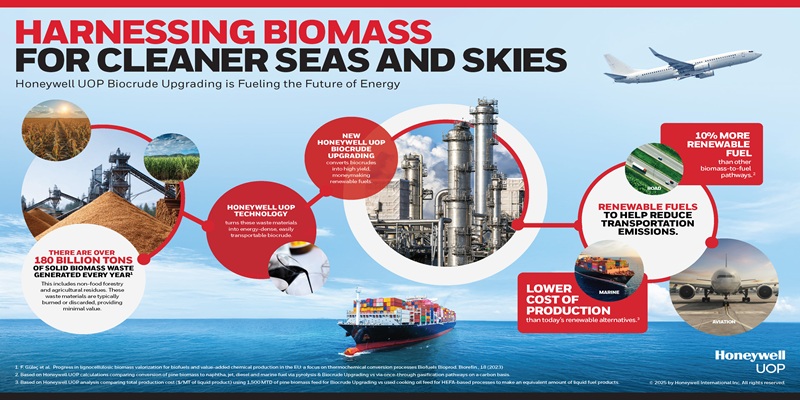Schedule a Call Back
Adopting the right technology can make India self-reliant
 Industry News
Industry News- Nov 03,22

Fast-changing consumer demands, manufacturing standards, policy interventions and environment regulations are posing changing before Indian manufacturers. To mitigate these challenges, they banking on automation and digital tools, the adoption of which had gathered momentum during the Covid pandemic. Latest developments in Industry 4.0 or digitalization with the domain expertise of sectors like food & beverages (F&B), pharma, automotive, logistics, etc, will play a decisive role in furthering India’s manufacturing growth, observes Suprakash Chaudhuri, Head - Digital Industries, Siemens Ltd, in this interview with Rakesh Rao.
What are your priorities for Digital Industries at present?
A key priority for Digital Industries in India is to help our customers across manufacturing verticals, accelerate their digital transformation journey. With this, we are supporting our customers manage fast-changing market environments, ever-increasing complexity, integration challenges, the need for flexibility and resilience, among others. With our deep domain know-how and vertical experience, we are helping our customers create a blueprint for their digital transformation across the vertical (the digital flow from the digital twin of the product to the real product) and horizontal dimensions (from OT to IT) and co-create solutions. Along with creating a level playing field for Indian enterprises to compete with global players, we are also enabling Indian manufacturing enterprises especially, small and medium enterprises (SMEs), to free up their capital expenditure and grow sustainably.
On September 13, 2022, Siemens officially launched the Xcelerator platform in India. What is the significance of this launch to Indian customers?
Fast-changing customer and consumer demands, changing manufacturing standards, policy interventions, regulations and localisation of various vital processes are among the myriad challenges faced by Indian enterprises in manufacturing, infrastructure, energy and transportation. To navigate these, they need access to a wide variety of tools & platforms for maintaining data integrity, access and security, facilitating business decisions backed by intelligent insights, upskilling of the workforce and the management of complex cultural changes amongst others. Siemens has launched Xcelerator as an open and evolving digital business ecosystem with a curated portfolio of IoT-enabled hardware, software, and digital services. It is aimed at supporting customer efforts to accelerate their digital transformation and create value for organisations of all sizes in industry, buildings, grids and mobility.
How has Covid pandemic changed the dynamics of manufacturing with respect to usage of technologies – i.e., hardware as well as software?
While customers had already started investing in digital technologies before the pandemic, the adoption of these technologies gathered momentum during the pandemic. A cautious approach towards digitalization made way to enhanced interest levels. For example, the pandemic tested the resilience and flexibility of enterprises in verticals like pharma, which had to manufacture and reach vaccines and other lifesaving drugs across the world. The only way to respond flexibly and efficiently to these rapidly changing demands and new challenges is with the integration of product design & product manufacturing using automation and digitalization - be it food and beverages, pharmaceuticals or the automotive industry where we have close partnerships with our Indian customers.
What are the key challenges facing manufacturers (i.e., your customers) today? How is Siemens helping them overcome some of these challenges?
Manufacturers have been dealing with challenges that arise due to megatrends such as globalisation and climate change (government regulations that mandate sustainable products), fast-changing customer requirements and, increasingly, the occurrence of unforeseen events leading to supply chain disruptions.
There is an ever-greater pressure on manufacturers to lower their costs further to compete, while at the same time introducing more distinctive or customisable products to meet specific customer needs. Manufacturers also must respond to consumers who want - and expect - to buy a product at any time, wherever they are and have it delivered anywhere without delays or errors.
Resources are also getting scarce. So sustainable manufacturing is not a good thing anymore, it is a necessity whether in terms of profitability or in terms of the environment for a better future. We need to make more from less.
Siemens is delivering next-generation solutions to help manufacturers transform their operations through our concept of Digital Thread – which is a distinct, linked, traceable sequence of activities in the product or production lifecycle, that is digitised and automated. With our unique integrated concept combining industrial software and automation, IT & OT, we ensure seamless interaction of all components and competencies. This helps in maximising transparency, not only at the field level, but across all vertical levels up to the corporate management level, shorter time-to-market with simulation tools, increase in plant productivity with additional diagnostics and energy management capabilities, and increased flexibility.
As a technology company, Siemens is combining the real and digital worlds. What does that mean to its customers?
The need to combine the real and digital worlds, including the entire value chains, has become evident to unlock the full potential of digitalization. Developing a new product, planning a new plant, or producing with the help of digital tools creates a detailed virtual image, the digital twin. With the Digital Twin, we enable manufacturing enterprises to create a precise virtual model of a product or a production plant. It displays their development throughout the entire lifecycle and allows operators to predict behaviour, optimise performance, and implement insights from previous design and production experiences.
Thanks to our comprehensive domain expertise and optimized tools, Siemens is the only company that can offer this holistic approach for merging the virtual and the real world. With this, we enable our customers to reduce their product development times while at the same time increasing the flexibility, productivity and environmental efficiency of their production processes.
High upfront cost is a big put-off for companies (especially Small & Medium Enterprises or SMEs) who intend to adopt automation. Are there low-cost entry routes into automation? How is Siemens supporting the needs of SMEs?
No matter how efficiently and effectively manufacturers plan, the manufacturing process is complex and is an evolutionary process. So, it does not really matter whether you are a large or SME, pharma vertical or F&B vertical, green field or brown field enterprise etc; agility is what matters. This is especially true for SMEs facing multiple issues like resource crunch, manpower issues and even management bandwidth. Some fundamental aspects that we tell our customers before they start their digitalization journey are:
Start small and then scale: The integration of automation and digitalization can be achieved in baby steps starting with the lowest-hanging fruits and then, improved returns can fund continuous investments.
Digitalization is a journey, and the technology will pay for itself: Technology will keep evolving and an enterprise will have to design a blueprint and define milestones with respect to how flexibly they can integrate this into their design & manufacturing cycle.
It is here that platforms like Xcelerator come in. Enterprises can pick and choose where they want to start their digitalization journey using the platform ecosystem and scale up based on one’s ambition; whether to build new business models, develop new products or cater to new or diverse customer groups.
In terms of modernisation and adoption of automation, how do you see the current status of the Indian manufacturing sector?
Today, Indian enterprises have the ease of accessibility to the latest technology simultaneously with the rest of the world like Industry 4.0, Edge, IIoT, AI, etc. This was not the case even 10 years back.
The second part is how effectively we are harnessing this. Latest developments in Industry 4.0 or digitalization with the domain expertise of sectors like F&B, pharma, automotive, logistics, etc, will play a decisive role in furthering India’s manufacturing growth. While many large enterprises have been quick to transition into this digital world, we are also seeing many start-ups or new verticals like intralogistics, EV manufacturers, and aerospace & defence enterprises that are digital natives, also adopting these early in their manufacturing cycle.
What are the emerging trends in the manufacturing/engineering industry?
We see digital twin adoption in all kinds of organisations. However, its adoption in the manufacturing space is the most exciting. For example, Gartner expects over two-thirds of companies that have implemented IoT would have deployed at least one digital twin in production by 2022, to increase their effectiveness.
Trends and developments in the world of IT like 5G, artificial intelligence, edge computing, machine learning, and digital marketplaces as well as new forms of collaboration are providing additional momentum and are changing industrial workflows. This is the next stage in digital transformation.
Soon, we will see far greater dovetailing of IT and OT (operational technology). Our MES systems have already demonstrated the first steps for how that can work. And we are also hard at work on developing integrated platforms, for example with edge computing. Edge Computing and AI can be used to increase availability and productivity and to optimise Overall Equipment Efficiency (OEE), thus enabling closed-loop analytics. Artificial intelligence can also support engineers to significantly reduce programming times and virtual reality enables to reduce travel costs in new ways of global collaboration. Industrial communication, e.g. Industrial 5G, is crucial for these applications and we are hoping to see some early deployment of this soon.
With a Digital Enterprise Suite, our customers can begin investing today in future-proof solutions for the step-by-step implementation of Industry 4.0. This means we’re joining forces with our customers in thinking ahead to the future of the industry.
For Siemens, where does India stand in the global scheme of things?
India contributes significantly to the development of digital solutions for global customers. A team of 6,000 software developers is based in India working on a range of technologies such as AI/ML, automation, digitalization, etc.
What are your growth plans for Siemens in India?
We will continue to expand our portfolio of solutions that will address our customer’s challenges.
The Indian manufacturers have the aptitude and attitude to meet the growing needs. Adopting the right technology can make India self-reliant. With digitalization, Indian industry, especially SMEs (small and medium-sized enterprises) can achieve constant technical progress as well as the competence to meet the changing requirements of both local and global markets.
Related Stories

ABB India Upgrades Peenya Plant, Adds 25% VSD Capacity
The new line features a combination of advanced robotics and digital production monitoring technology, handling production of large batches with speed and precision and providing real-time visibilit..
Read more
India’s Top 100 Engineering Companies 2025 by Smart Manufacturing & Enterprises
FY25 unfolded against a challenging external setting. Despite the global headwinds, India posted real GDP growth of 6.5 per cent in FY2024–25. In this edition, Smart Manufacturing & Enterprises (S..
Read more
Tata Technologies and Synopsys Collaborate to Drive Software-Defined Mobility
The companies will leverage each other’s expertise to provide innovative solutions that address SDV complexity and enable OEMs to lead in the rapidly evolving mobility landscape.
Read moreRelated Products

Digital Colony Counter
Rising Sun Enterprises supplies digital colony counter.
Robotic Welding SPM
Primo Automation Systems Pvt. Ltd. manufactures, supplies and exports robotic welding SPM.

Heat Exchanger Scale Removal Compound -hesr-300
Hi There!
Now get regular updates from IPF Magazine on WhatsApp!
Click on link below, message us with a simple hi, and SAVE our number
You will have subscribed to our Industrial News on Whatsapp! Enjoy















